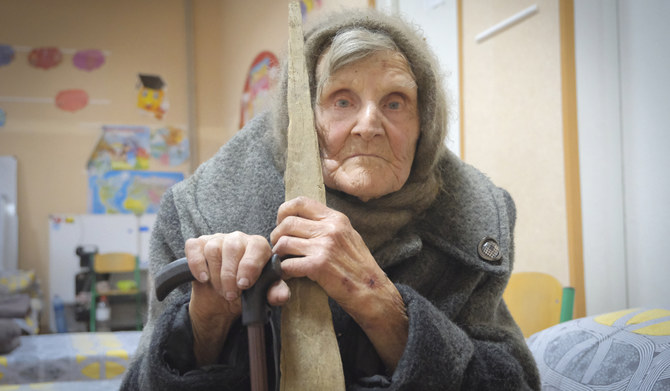TOKYO: Japanese women who say “Me too” do so at their own risk.
Online comments accused Rika Shiiki of lying and being a publicity hound when she tweeted that she lost business contracts after refusing to have sex with clients. Some said that by agreeing to dine with a man, she led him on.
“The comments I received were disproportionately negative,” the 20-year-old university student and entrepreneur told a TV talk show in December. “We need to create a society where we can speak up. Otherwise sexual harassment and other misconduct will persist forever.”
The #MeToo movement has not caught on in Japan, where speaking out often draws criticism rather than sympathy, even from other women.
In a patriarchal society where women have long taken the blame, many victims try to forget attacks and harassment instead of seeking support and justice, said Mari Miura, a political science professor at Sophia University in Tokyo.
“Japan lacks such a sisterhood,” she said. “It’s an exhausting and intimidating process. ... It’s quite natural that victims feel reluctant to speak up.”
One woman, journalist Shiori Ito, went public last year. She held a news conference after prosecutors decided not to press charges against a prominent TV newsman whom she had accused of raping her after he invited her to discuss job opportunities over dinner and drinks in 2015.
Many online comments criticized her for speaking out, looking too seductive and ruining the life of a prominent figure. Some women called her an embarrassment, she told The Associated Press.
The October release of Ito’s book “Blackbox” detailing her ordeal came as the #MeToo phenomenon was making headlines in America. It prompted some discussion in Japan, but only a handful of other women came forward.
“Many people think Shiori’s problem has nothing to do with them ... and that’s why #MeToo isn’t growing in Japan,” said lawyer Yukiko Tsunoda, an expert on sex crimes. In Japan, sexually assaulted women are traditionally called “the flawed,” she said.
Nearly three quarters of rape victims said they had never told anyone, and just over 4 percent had gone to police, according to a 2015 government survey. The study found that one in 15 Japanese women had been raped or forced to have sex.
Victims often shy away from going to court out of fear, privacy concerns or losing jobs, Tsunoda said.
Justice Ministry statistics show only one-third of rape cases go to court, and punishment is not severe. Of the 1,678 people tried for sexual assault in 2017, only 285, or 17 percent, were sentenced to prison for three years or longer. In November, Yokohama prosecutors, without saying why, dropped the case against six students from a leading university who had been arrested for the alleged gang-rape of a teenage female student after getting her drunk. The university expelled three of them.
Popular writer Haruka Ito, who goes by the pen name Ha-Chu, was criticized after revealing in December that she had faced sexual and other harassment by a senior male employee when both worked at Dentsu, Japan’s largest advertising agency.
The alleged harasser, whom she identified by name, apologized in a statement and quit as head of his own company, though he denied the harassment was sexual.
Ha-chu said in a statement that she initially tried to endure and forget the ordeal, fearing that exposing it would hurt her image and cause problems for her former colleagues. After news of the journalist Ito’s case and the #MeToo movement, “I decided to speak out,” she said.
Conformist pressure in Japan discourages women from speaking out or saying “no” to many things, including unwanted sex, said Saori Ikeuchi, a former lawmaker and gender diversity activist.
That mindset has silenced virtually all of Japan’s so-called “comfort women,” who were sexually abused as prostitutes for the wartime military, while Japan has shown little sympathy to victims from Korea and elsewhere, she said.
Ito, the journalist, said that after she became dizzy and passed out in a restroom, her alleged attacker, Noriyuki Yamaguchi, took her to his hotel room and raped her while she was incapacitated.
The alleged assault was just the beginning of her ordeal, Ito said. The women’s clinic she visited the next day lacked expertise on rape, and a rape victim support center refused to give her advice on the phone. Police required her to recount the ordeal repeatedly and to demonstrate it with a life-sized doll, she said.
Ito said it took three weeks to get police to accept her criminal complaint and start investigating. She held a news conference in May, announcing that she had requested a court-appointed citizens’ panel to review the decision to drop the case. The inquest in September agreed with the decision not to indict.
Yamaguchi has denied any wrongdoing in published articles and on Facebook. Ito has filed a civil lawsuit against him, demanding 10 million yen ($93,000) in compensation for her suffering from the alleged rape, and seeking any clues as to why he was let go and never arrested.
“I thought about how I could change the situation, and I had no choice but to speak out about my experience,” she said.
A group of opposition lawmakers has started its own investigation, seeking to find if the charges were dropped because of Yamaguchi’s connections to powerful political officials.
National Police Agency official Junichiro Kan told the lawmakers at a recent hearing that Ito’s case was properly handled. Police say they have tried to be more sensitive to the feelings of victims while guarding against wrongful accusations.
Mika Kobayashi, a rape victim, runs a self-help group that has exchanged thousands of #MeToo experiences, but only anonymously among themselves.
She said she was pushed into a car and raped on her way home in 2000. She reported the attack to police, but the attacker hasn’t been found. She has since published books about her recovery from the ordeal, to raise public awareness.
Her focus is on providing support and understanding for victims, rather than being an activist.
“I used to think of myself as someone hiding a big secret, a sex assault victim and unclean,” she said. “I’m so grateful I could connect with fellow victims. They gave me strength.”
The knowledge that others also blamed themselves and lost self-esteem has helped her to heal slowly, Kobayashi said.
“I think it’s also OK not to speak up,” she said. “I respect any decision that makes a victim feel most comfortable.”
Saying ‘Me Too’ in Japan has risk of being bashed, ignored
Saying ‘Me Too’ in Japan has risk of being bashed, ignored

‘Miracle’ survivor found 5 days after building collapse

- When we went down to the side of the slab we had uncovered, we heard somebody inside, and we stopped all the heavy operations
JOHANNESBURG: Rescuers and onlookers cheered and applauded on Saturday as a survivor was rescued after 116 hours from underneath the rubble of a collapsed building in South Africa, with the tragedy having killed at least 13.
Provincial premier Alan Winde said on X: “It is a miracle that we have all been hoping for.”
An apartment block under construction in the southern city of George crumbled on Monday afternoon while an 81-person crew was on site.
“When we went down to the side of the slab we had uncovered, we heard somebody inside, and we stopped all the heavy operations,” Colin Deiner, head of rescue operations, told reporters.
Rescuers then called out to the survivor, and he spoke back, Deiner said.
“He indicated to us that he’s got weight on his legs, and we’re very concerned about that after such a long period.” After several hours, the survivor was extricated and rushed to a hospital.
Rescue teams have been working against time since the structure came crashing down.
Twenty-nine people were rescued alive, while thirty-nine remained unaccounted for.
Winde said a “difficult” identification process was underway, and police were using fingerprints, DNA testing, and photographs.
The city had approved construction plans for a 42-unit apartment block in July.
The reasons for the collapse are still unknown.
Biden jokes Trump should have injected himself with bleach

- Biden also made light of Trump’s “love letters” from North Korean leader Kim Jong Un
- In a senior moment, Biden mistakenly referred to Kim as the president of South Korea
PORTOLA VALLEY, California: US President Joe Biden joked on Friday that he wished former President Donald Trump had injected himself with a little bleach, resurrecting one of Trump’s more head-scratching moments from the early days of the coronavirus pandemic.
Biden, at a fundraising event south of San Francisco for his re-election campaign, said the presidency of his Republican opponent was chaotic and that voters should keep that in mind. Biden and Trump are locked in a close contest ahead of the November election.
“Remember him saying the best thing to do is just inject a little bleach in your arm? That’s what he said. And he meant it. I wish he had done a little bit himself,” Biden said.
During the early months of the pandemic in 2020, Trump said that an “injection inside” the human body with a disinfectant like bleach or isopropyl alcohol could help protect against the virus.
Biden also made light of what he called Trump’s “love letters” from North Korean leader Kim Jong Un, although Biden mistakenly referred to Kim as the president of South Korea.
Trump had met with Kim and exchanged a number of letters with him, copies of which he kept in a loose-leaf binder in the Oval Office.
A spokesperson for the Trump campaign did not immediately respond to a request for comment on Biden’s remarks.
Biden has made light of Trump’s bleach comment before, saying on April 24 in Washington that Trump had injected himself and “it all went to his hair.”
Meaty issue: German political party calls for €4.90 price cap on doner kebabs

- Die Linke appeals to government as price of national favorite hits €10 in some cities
- Scheme would cost taxpayer about €4bn
LONDON: German political party Die Linke has urged the government to cap the price of a much loved food item — the doner kebab.
The party has proposed providing daily vouchers to households that would limit prices to €4.90 ($5.28) and €2.90 for young people under an initiative known as Donerpreisbremse.
The scheme is projected to cost the government about €4 billion.
Introduced after the Second World War by Turkish immigrants who adapted the dish to suit local tastes, the doner kebab is a national favorite in Germany, with an estimated 1.3 billion consumed annually. But their soaring price has become a hot-button political issue.
Die Linke said the cost of a doner kebab had reached €10 in some cities, from €4 just two years ago.
“For young people right now it is an issue as important as where they will move when they leave home,” said Hanna Steinmuller, a lawmaker with the Greens party.
“I know it’s not an everyday issue for many people here … but I think as voter representatives we are obliged to highlight these different perspectives.”
German Chancellor Olaf Scholz was famously confronted by a voter last year who demanded he “speak with Putin … I’m paying €8 for a doner.”
With public pressure mounting, Scholz recently acknowledged on social media that “everywhere I go, mostly by young people, I get asked if there should be a price cap for doner kebabs.”
Despite the appeals, the chancellor rejected the proposal, citing the impracticality of price controls in a free market economy.
Despite its humble origins as a street food, the doner kebab has become an unexpected point of political focus.
Last month, German President Frank-Walter Steinmeier sparked controversy when on a visit to Turkiye he gifted 60 kg of kebab meat from Berlin to Istanbul in what some called a clumsy attempt to symbolize the strong cultural ties between the two nations.
A 98-year-old in Ukraine walked miles to safety from Russians, with slippers and a cane

- Describing her journey, the nonagenarian said she had fallen twice and was forced to stop to rest at some points, even sleeping along the way before waking up and continuing her journey
KYIV, Ukraine: A 98-year-old woman in Ukraine who escaped Russian-occupied territory by walking almost 10 kilometers (6 miles) alone, wearing a pair of slippers and supported by a cane has been reunited with her family days after they were separated while fleeing to safety.
Lidia Stepanivna Lomikovska and her family decided to leave the frontline town of Ocheretyne, in the eastern Donetsk region, last week after Russian troops entered it and fighting intensified.
Russians have been advancing in the area, pounding Kyiv’s depleted, ammunition-deprived forces with artillery, drones and bombs.
“I woke up surrounded by shooting all around — so scary,” Lomikovska said in a video interview posted by the National Police of Donetsk region.
In the chaos of the departure, Lomikovska became separated from her son and two daughters-in-law, including one, Olha Lomikovska, injured by shrapnel days earlier. The younger family members took to back routes, but Lydia wanted to stay on the main road.
With a cane in one hand and steadying herself using a splintered piece of wood in the other, the pensioner walked all day without food and water to reach Ukrainian lines.
Describing her journey, the nonagenarian said she had fallen twice and was forced to stop to rest at some points, even sleeping along the way before waking up and continuing her journey.
“Once I lost balance and fell into weeds. I fell asleep … a little, and continued walking. And then, for the second time, again, I fell. But then I got up and thought to myself: “I need to keep walking, bit by bit,’” Lomikovska said.
Pavlo Diachenko, acting spokesman for the National Police of Ukraine in the Donetsk region, said Lomikovska was saved when Ukrainian soldiers spotted her walking along the road in the evening. They handed her over to the “White Angels,” a police group that evacuates citizens living on the front line, who then took her to a shelter for evacuees and contacted her relatives.
“I survived that war,’ she said referring to World War II. “I had to go through this war too, and in the end, I am left with nothing.
“That war wasn’t like this one. I saw that war. Not a single house burned down. But now – everything is on fire,” she said to her rescuer.
In the latest twist to the story, the chief executive of one of Ukraine’s largest banks announced on his Telegram channel Tuesday that the bank would purchase a house for the pensioner.
“Monobank will buy Lydia Stepanivna a house and she will surely live in it until the moment when this abomination disappears from our land,” Oleh Horokhovskyi said.
Amazon Purr-rime: Cat accidentally shipped to online retailer

- Galena was found safe by a warehouse worker at an Amazon center after vanishing from her home in Utah
LOS ANGELES: A curious cat that sneaked into an open box was shipped across the United States to an Amazon warehouse after its unknowing owners sealed it inside.
Carrie Clark’s pet, Galena, vanished from her Utah home on April 10, sparking a furious search that involved plastering “missing” posters around the neighborhood.
But a week later, a vet hundreds of miles (kilometers) away in Los Angeles got in touch to say the cat had been discovered in a box — alongside several pairs of boots — by a warehouse worker at an Amazon center.
“I ran to tell my husband that Galena was found and we broke down upon realizing that she must have jumped into an oversized box that we shipped out the previous Wednesday,” Clark told KSL TV in Salt Lake City.
“The box was a ‘try before you buy,’ and filled with steel-toed work boots.”
Clark and her husband jetted to Los Angeles, where they discovered Amazon employee Brandy Hunter had rescued Galena — a little hungry and thirsty after six days in a cardboard box, but otherwise unharmed.
“I could tell she belonged to someone by the way she was behaving,” said Hunter, according to Amazon.
“I took her home that night and went to the vet the next day to have her checked for a microchip, and the rest is history.”




















